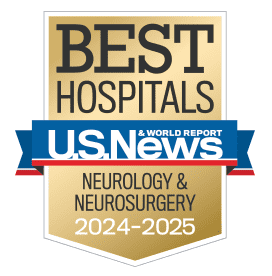HIGHLIGHTS
The Einstein Aging Study Brings Digital Technology to the Community for Innovative Real-World Aging Research
We were recently awarded a $32 million five-year grant renewal for the Einstein Aging Study (EAS), focused on elucidating the pathways linking behavioral, social/emotional and metabolic health factors and environmental factors to cognitive decline prior to the onset of Alzheimer’s disease and related dementias (ADRD). The new National Institutes of Health (NIH) funding will allow investigators to apply innovative ambulatory approaches to identify daily exposures and behaviors that may be associated with risk for cognitive decline. This will allow the EAS to better understand the modifiable risk factors for ADRD by examining their effects on cognitive performance and decline prior to ADRD onset. The study has supported pioneering research in cognitive aging, increased our understanding of preclinical states of dementia and served as a national and international resource for Alzheimer's disease research.
Our multidisciplinary team of world-renowned physician-scientists and researchers developed and has been applying innovative ambulatory assessment methods using digital mobile technologies, such as customized smartphones and digital wearable devices, that evaluate cognitive performance and exposures in real time, multiple times per day, while individuals are engaged in everyday activities in the community. This gives a more accurate picture of an individual’s daily functioning and its impact on cognition, which may provide more reliable estimates of cognitive abilities and how those abilities change from day to day. This can also provide new information regarding mechanisms linking exposures to cognitive outcomes and may inform future targeted interventions.
Through this new grant, EAS investigators will follow more than 700 older adults (60+ years) living at home, each of whom will be given a customized smartphone and digital wearable devices that will monitor physical activity, sleep, blood sugar levels, air quality and other environmental conditions. Assessment of genetic risk factors and blood-based biomarkers of neurodegeneration will also be obtained. This will give valuable insights to link potentially modifiable risk factors to cognitive outcomes and the development of ADRD, and will identify ways to delay the onset and progression of Alzheimer’s disease.
These innovative methods and mobile technologies have allowed us to move from bringing the community to the clinic to bringing our clinic-developed measures to the community.
The EAS is one of the longest running studies of its kind in the United States and has been a cornerstone of our Department’s aging research with continuous funding by the National Institute on Aging (NIA)/NIH for more than 40 years.
Principal investigators on the study from Montefiore Einstein include Mindy Katz, MPH, Senior Associate in the Saul R. Korey Department of Neurology, Carol Derby, PhD, Professor of Neurology and Epidemiology & Population Health and Louis and Gertrude Feil Faculty Scholar in Neurology, Charles B. Hall, PhD, Professor of Neurology and Epidemiology & Population Health, Cuiling Wang, PhD, Professor of Neurology and Epidemiology & Population Health and Richard Lipton, MD, the Edwin S. Lowe Chair of Neurology and Professor of Neurology, Psychiatry and Behavioral Sciences, and Epidemiology & Population Health.
At Montefiore Einstein, we’re committed to innovation in neurology and improving outcomes for individuals with or at risk for ADRD. We’re ranked in the top 1% of all hospitals in the nation for neurology and neurosurgery according to U.S. News & World Report, and we are an international referral site for the most complex cases.
The $32 million five-year grant renewal for the Einstein Aging Study for 2022-2027 is funded by the NIA, part of the NIH. (Project Number: 5P01AG003949-40)
Patient referrals
At Montefiore Einstein Saul R. Korey Department of Neurology, we know providing patients with the best possible care includes teamwork and trust. We work closely with our valued referring physicians to ensure open communication and reliable expertise.
Contact Us
Mark F. Mehler MD, Chair, Neurology
mark.mehler@einsteinmed.edu


